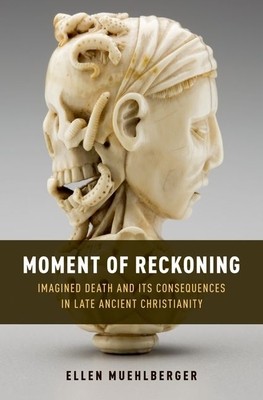
- We will send in 10–14 business days.
- Author: Ellen Muehlberger
- Publisher: Oxford University Press, USA
- ISBN-10: 0190459166
- ISBN-13: 9780190459161
- Format: 15.5 x 23.9 x 3.1 cm, hardcover
- Language: English
- SAVE -10% with code: EXTRA
Reviews
Description
Late antiquity saw a proliferation of Christian texts dwelling on the emotions and physical sensations of dying, not as a heroic martyr in a public square or a judge's court, but as an individual, at home in a bed or in a private room. In sermons, letters, and ascetic traditions, late ancient Christians imagined the last minutes of life and the events that followed death in elaborate detail. The majority of these imagined scenarios linked the quality of the experience to the moral state of the person who died. Death was no longer the "happy ending," in Judith Perkins's words, it had been to Christians of the first three centuries, an escape from the difficult and painful world. Instead, death was most often imagined as a terrifying, desperate experience. This book is the first to trace how, in late ancient Christianity, death came to be thought of as a moment of reckoning: a physical ordeal whose pain is followed by an immediate judgment of one's actions by angels and demons and,
after that, fitting punishment.
EXTRA 10 % discount with code: EXTRA
The promotion ends in 19d.10:01:54
The discount code is valid when purchasing from 10 €. Discounts do not stack.
- Author: Ellen Muehlberger
- Publisher: Oxford University Press, USA
- ISBN-10: 0190459166
- ISBN-13: 9780190459161
- Format: 15.5 x 23.9 x 3.1 cm, hardcover
- Language: English English
Late antiquity saw a proliferation of Christian texts dwelling on the emotions and physical sensations of dying, not as a heroic martyr in a public square or a judge's court, but as an individual, at home in a bed or in a private room. In sermons, letters, and ascetic traditions, late ancient Christians imagined the last minutes of life and the events that followed death in elaborate detail. The majority of these imagined scenarios linked the quality of the experience to the moral state of the person who died. Death was no longer the "happy ending," in Judith Perkins's words, it had been to Christians of the first three centuries, an escape from the difficult and painful world. Instead, death was most often imagined as a terrifying, desperate experience. This book is the first to trace how, in late ancient Christianity, death came to be thought of as a moment of reckoning: a physical ordeal whose pain is followed by an immediate judgment of one's actions by angels and demons and,
after that, fitting punishment.


Reviews